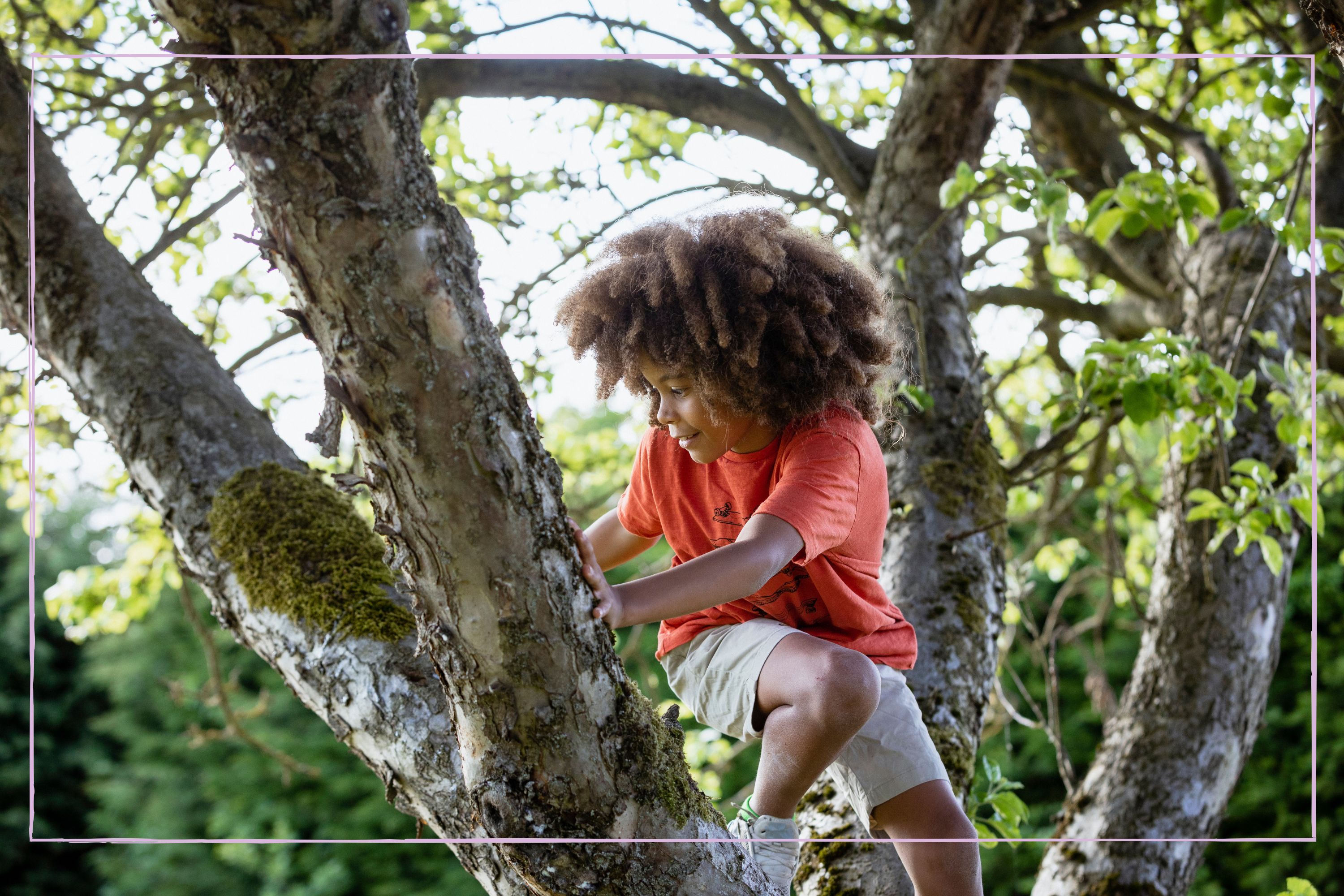
Ask your kid 'what does careful mean?' and they'll likely give a generic reply that doesn't work across different scenarios - sharing more intentional instructions will help your kids in the long run. Try one teacher's suggestions below to help your children recognise their limits.
While you might be able to accept the reasons why you should let your kids fail every once in a while (it's great for character-building, problem-solving, and emotional intelligence), if that failure could result in them hurting themselves then it's probably time to step in. You don't have to be a plastic wrap parent to take this stance - it's just about keeping your kid safe from harm.
When you notice your child engaging in an activity that could result in an accident, most parents' first instinct will be to shout 'Be careful!' But one teacher has shared why you might want to rethink this approach and provide more direct instruction instead.
Katie Plunkett - aka @kidtalk.co on Instagram - is a full-time teacher and educator, and is passionate about child development. She's gained over 370,000 followers on Instagram for her parenting advice, so we think her tips are worth taking notice of.
In a carousel post titled, "Don't tell your kid to 'be careful'. This works better..." Katie shares some alternative phrases to use when you're worried your child is at risk of hurting themselves. In the caption, she writes, "But here’s the problem. We may know what ['be careful'] means, but our kids won’t necessarily see the risks that we do. We have to be more direct, or better yet, guide our little ones through the challenges they face by fostering self- and situational awareness and encouraging problem-solving skills."
Katie adds that risky play is beneficial for kids, so it's worth assessing whether you need to step in at all. "It helps them develop awareness, risk management, confidence, resilience, and executive functioning skills. It’s also proven to reduce the risk of serious injury in the long term," she explains. And we all know how important raising resilience kids is, these days. (hint: very)
Instead of impulsively calling out 'be careful' to your child, Katie advises pausing trying the following three steps:
- Pause and breathe
- Assess the potential for serious harm
- Respond accordingly or don't respond at all - remember, not every situation requires a response
And if the situation does require adult intervention, Katie has shared the three types of response and plenty of examples that can help you communicate with your child about the risk they might be taking.
1. Be direct
- Instead of 'mind your head' say "Look before you stand up."
- Instead of 'careful of the bee' say "Stay still so the bee won't bother you."
- Instead of 'be careful' say "Stay low so you don't bump your head."
- Instead of 'slowly on the stairs' say "Hold the handrail over the stairs."
- Instead of 'stop running' say "Use walking feet, please."
- Instead of 'don't drop that' say "Use both hands to carry that."
- Instead of 'stay off the grass' say "Please stick to the path."
- Instead of 'be safe with scissors' say "Point the scissors down, please."
2. Help your child foster awareness
- "Notice how these rocks are slippery."
- "Do you see the poison ivy?"
- "Try moving your feet slowly."
- "Try using your hands/feet/arms/legs."
- "Can you hear the rushing water?"
- "Do you feel stable on that rock?"
- "Are you feeling scared/tired/safe?"
3. Encourage problem-solving
- "What's your plan if you climb that boulder/cross that log?"
- "What can you use to get over there?"
- "Where will you put that rock?"
- "How will you get down/get across?"
- "Who will be with you/go with you/help you?"
For more parenting advice, a child psychologist has revealed how giving children ‘ownership’ over their day can stop tantrums and an Olympic gold medallist has shared the words to use when your kid wants to give up a sport. Elsewhere, he's the six things kids love to hear their parents say to each other.







